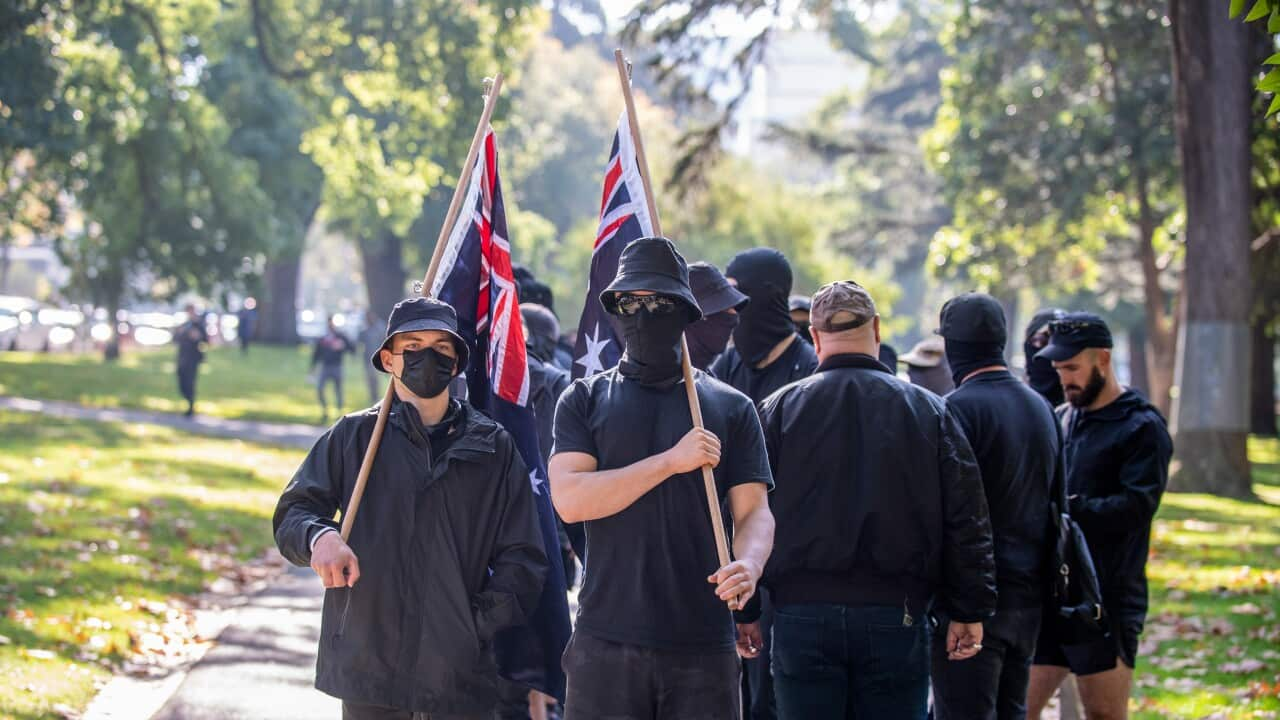In a reversal of a change made almost two years ago, Australia's national terrorism threat level has been raised from "possible" to "probable".
, with Prime Minister Anthony Albanese noting that increasing the threat level didn't mean an attack was "inevitable" or that there was any intelligence about "an imminent threat or danger" to Australia.
Here are five things to know about the changing security environment in Australia.

Australia's terror threat level has been raised from 'possible' to 'probable'. Source: SBS News
Australians being radicalised more quickly
ASIO director-general Mike Burgess said Australia's security environment was becoming "more volatile and more unpredictable".
"We are seeing an increase in extremism. More Australians are being radicalised and radicalised more quickly," he told reporters in Canberra on Monday.
"More Australians are embracing a more diverse range of extreme ideologies and more Australians are willing to use violence to advance their cause."
As a result, politically motivated violence was now among ASIO's "principal security concerns", alongside espionage and foreign interference, Burgess said.
"Politically motivated violence encompasses terrorism, but is broader than that," he said.
"It covers any violent act or any violent threat intended or likely to achieve a political objective.
"This includes violent protest, riot, or an attack on a politician or our democratic institutions."
Gaza is a 'driver' but not the cause
"At this stage, we do not believe any of the terrorist plots we have investigated in the last year have been inspired by Gaza terrorist leaders offshore are not inspiring attacks on onshore," he said.
"This is why we did not raise the threat level in the immediate aftermath of the 7th of October."
But Burgess noted what was happening in Gaza was a "significant driver" of increased violence in Australia and the "emotion and heat" it had added to society contributed to the increased threat level.
"The conflict has fuelled grievances, promoted protest, exacerbated division, undermined social cohesion, and elevated intolerance," he said.
'Anti-authority ideologies, conspiracy theories, and diverse grievances' growing
Burgess said "anti-authority ideologies, conspiracy theories, and diverse grievances", which increased during the COVID-19 pandemic, were gaining further momentum among Australians.
"Some are combining multiple beliefs to create new hybrid ideologies," he said.
"Many of these individuals will not necessarily espouse violent views, but may still see violence as a legitimate way to effect a political or societal change.
"All of this creates a security climate that is more permissive of violence."
Twenty-four attacks disrupted since 2014
Australia's intelligence and law enforcement agencies had "successfully disrupted" 24 terror attacks since 2014, Burgess said.
Since April this year, there have already been eight attacks or disruptions that either "involved alleged terrorism or were investigated as potential acts of terrorism," he said.
Burgess said all eight reflected the "resurgence in ".
"In the recent cases, the oldest perpetrator was 21 and the youngest was 14," he said.
", conspiracies and misinformation are flourishing in the online ecosystem, and young Australians are particularly vulnerable."
'Be aware but not afraid'
Burgess urged Australians to "be aware but not afraid".
"If you believe a person you know is going down a dark, extremist path please talk to someone or call ," he said.
"ASIO and our law enforcement partners are working hard to detect these terrorist threats and are well-practised at defeating them."











